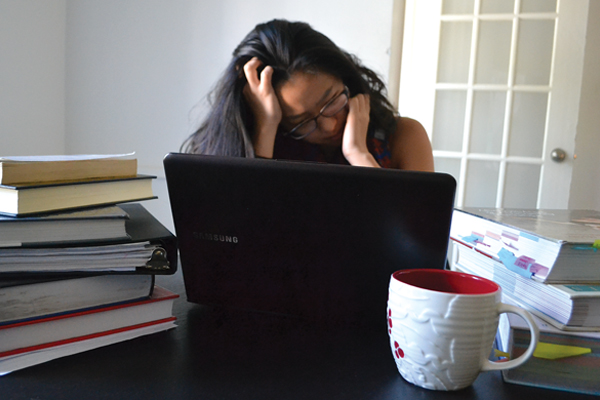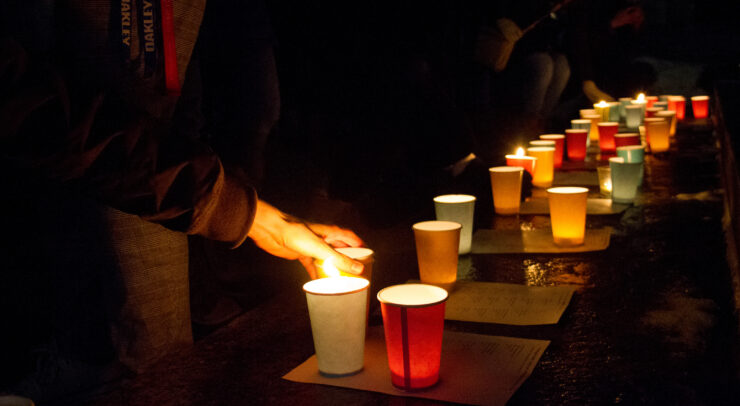Allan Rock talks plans for student space on campus, New Year’s resolutions, and meeting John Lennon
The Fulcrum: What was the biggest challenge you faced in 2012 as president of the university?
The university underwent something of a facelift this year. What project are you most excited to see come to completion?
The one I’m looking forward most to being completed is student space in what we’re calling “one-stop shopping”—one-stop shopping and the student centre. As part of our five-year capital plan, the Board of Governors has approved the spending of money to build an enlarged library, because Morisset is just too small—it needs more carrels, more computers, more space just to study or hang out. As part of that project, we are also going to build floors of couches, corners, pool tables, ping pong tables, study spaces, [and] coffee shops, so that between classes, there’s a place for people to go—just student space. We have so little of it.
And also one-stop shopping, meaning that in one place you’d be able to have financial aid, [Student Academic Success Service], academic performance assistance, counselling services—everything in one place, so you don’t have to run around different parts of the campus to get things you need. So if I could, tomorrow, have one thing—apart from a billion dollars—it would be to snap my fingers and say, “There it is, five storeys of spanking new space.” That is the highest priority for me.
Then we have a whole bunch of other projects which are already authorized by the board: we’re going to build the new faculty of health sciences to pull that faculty together for the first time, and [the Advanced Research Complex] is going to be finished in March of 2014. It’s going to be five storeys of advanced research; some 200 graduate students; 30 professors in photonics, catalysis, geosciences—it’s going to be a fabulous facility.
In a promotional video released by the university this past September, you said you hope people will look back at 2012 and say it was the year the university “took the next step.” What steps did the university take in 2012?
We have made enormous strides in so many ways, including internationally. The relationships we developed with some leading universities on four continents are really going to help us enhance the reputation of the University of Ottawa, broaden the networking by our researchers and members of the faculty, enrich our student body with more students coming from outside the country, and create new possibilities for exchange for our own students.
I think we’ve taken a step forward in the sense that we’re now much more engaged in the world; people are more aware of us, they’re talking about us in Europe and South America and Asia. I think also that’s reflected in the way we’re ranked globally. We’re one of only two Canadian universities that went up in [the Times Higher Education World University Rankings]. We went from 185 to 171 in the rankings. What’s important there is the trajectory—we are on our way in the right direction, and we’ve got real momentum. Every other Canadian university except one went down in the rankings this year, and one of them fell out of the top 200 altogether, which is Queen’s.
I think we’re moving forward; we are going to the next level in terms of reputation, in terms of international connections, in terms of the way people think of us. People think of us now as a top-10 university for research, a top-200 university, solidly in the top 200 and going up. They think of us as a place which is renewing itself physically—we’ve had so many new professors in the last eight to 10 years; we have a renewal of generations among our professors.
In 1969, when you were the president of the Student Federation of the University of Ottawa, you met John Lennon and Yoko Ono and brought them to the campus. If you had the opportunity to bring an influential figure to campus today, who would you invite?
I’d love to bring Nelson Mandela. Of all the people I’ve met over the years, he is probably the most impressive. He has a magical personality and a unique presence in the world—a guy who has come through so much but did it with dignity and courage and class; who led a country that could easily have descended into violence peacefully into a new system of governance. With all of his fame and achievement and the status he gained internationally, he could easily be dismissive of people or arrogant, but he is none of that.
By the way, John Lennon was the same way. He was very down to earth and very humorous and calm; in fact, he asked me to drive him around Ottawa for the day here. He just wanted to see some of the city. He and Yoko were in my Volkswagen as we drove them around town. I brought them out the front door [of Tabaret] so they could see the crowd on the lawn of Tabaret and say a few words. That was nice.
If you could make a recommendation to University of Ottawa students to make a certain New Year’s resolution, what would that resolution be?
I would just say participate fully in student life. One of the things that made my years here as a student so much fun and so memorable was that I got involved in things—the student union, the debating society, student radio; I wrote for the Fulcrum. It’s so easy to come onto campus, go to your classes, and go home. Or stay home and not go to your classes. I’ve done that too. But to come here and to buy into the place, to actually be a part of the community, to join things, to put yourself out there—be in the play or in the orchestra, or run for office, or whatever—just be part of it. I really hope when students leave, they are able to look back on their time here as really worthwhile, fun, memorable, and something that they really got something out of. As we all know, you get out what you put in. If I had one thing to recommend, it would be that they really take full part in everything this place has to offer.





